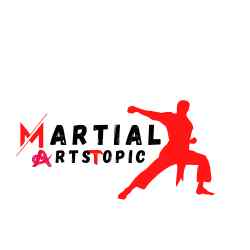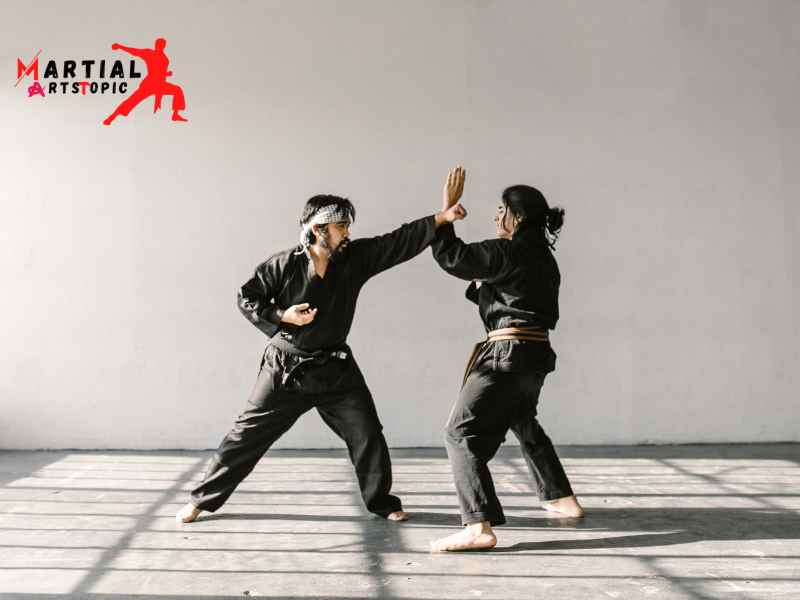
The History and Origins of Kenpo Karate
The History and Origins of Kenpo Karate: Kenpo Karate, a martial art known for its practical self-defense techniques and fluid movements, has a rich history and diverse origins. Developed in the 20th century, this martial art has gained popularity worldwide for its effectiveness and adaptability. The fascinating history of Kenpo Karate, exploring its roots and shedding light on its evolution over time.
Origins in China
What is Kenpo Karate? Kenpo Karate traces its roots back to ancient China, where it was initially known as “Chuan Fa” or “Fist Law.” The art of Chuan Fa encompassed various fighting systems, including hand strikes, kicks, joint locks, and throws. Chinese martial arts masters developed these techniques to protect themselves and their communities from external threats.
Migration to Okinawa
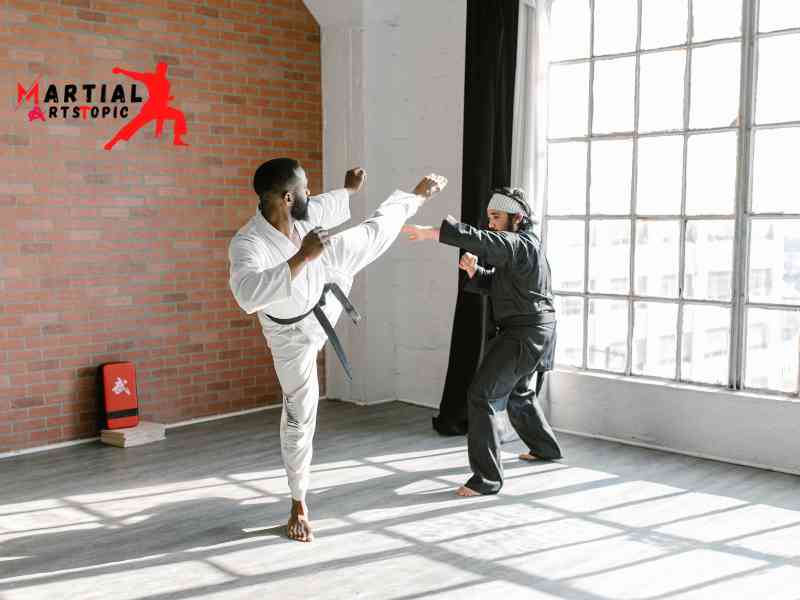
During the 16th century, there was a significant cultural exchange between China and Okinawa, a small island located in the Ryukyu Kingdom (now part of Japan). The exchange included the transmission of martial arts knowledge, which influenced the development of Okinawan martial arts.
It was during this time that Chuan Fa made its way to Okinawa and underwent further evolution. The Okinawan people adapted and refined the techniques, blending them with their own native martial arts, such as Te, which focused on striking and blocking techniques.
The Birth of Kenpo Karate
Gichin Funakoshi, a renowned martial artist from Okinawa, played a pivotal role in spreading and popularizing martial arts, including Kenpo Karate. In the early 20th century, Funakoshi introduced Karate to mainland Japan and eventually to the rest of the world.
Another influential figure in the development of Kenpo Karate was James Mitose. Born in Hawaii, Mitose was of Japanese descent and trained in the martial arts from an early age. He traveled to Japan to study martial arts further, eventually establishing his own martial arts school in the United States.
Mitose’s teachings combined elements of traditional Okinawan Karate and Chinese Kempo, which he referred to as “Kenpo Jiu-Jitsu.” His style emphasized practical self-defense techniques, focusing on efficient and quick strikes, joint locks, and throws. This blend of techniques formed the foundation of what is now known as Kenpo Karate.
Evolution and Modernization
Over time, Kenpo Karate continued to develop and adapt to meet the needs of practitioners in different cultures and environments. Various instructors and organizations put their unique spin on the martial art, incorporating new techniques and training methods.
One notable figure who played a significant role in modernizing Kenpo Karate was Ed Parker. Considered the “Father of American Kenpo,” Parker introduced a systematic approach to the art, emphasizing detailed principles, concepts, and logical progression through different belt levels.
Parker’s American Kenpo provided a comprehensive curriculum that included not only self-defense techniques but also forms (katas), sparring, and weapons training. This approach appealed to many students, and the popularity of Kenpo Karate grew rapidly across the United States and beyond.
Today, Kenpo Karate continues to thrive as a dynamic martial art practiced by people of all ages and backgrounds. Its practical self-defense techniques, fluid movements, and emphasis on adaptability make it a popular choice for those seeking to develop self-discipline, confidence, and physical fitness.
The Basics: A Beginner’s Guide to Kenpo Karate
The Basics: A Beginner’s Guide to Kenpo Karate Are you interested in learning a martial art that combines self-defense techniques with discipline and physical fitness? Look no further than Kenpo Karate. This traditional martial art has gained popularity worldwide for its practicality and effectiveness. If you’re a beginner looking to dive into the world of Kenpo Karate, this comprehensive guide will help you understand the basics and get started on your journey.
What is Kenpo Karate?
What is Kenpo Karate? Kenpo Karate, also known as American Kenpo, is a modern martial art that originated from traditional Japanese and Chinese martial arts. Developed in the early 20th century by Master William Kwai Sun Chow and further popularized by his student, Ed Parker, Kenpo Karate focuses on practical self-defense techniques and continuous improvement. The art combines strikes, kicks, joint locks, throws, and grappling techniques to create a comprehensive system suitable for individuals of all ages and fitness levels.
Benefits of Practicing Kenpo Karate
- Self-defense: One of the primary reasons they draw people to Kenpo Karate is its practicality in real-life self-defense situations. By mastering the techniques taught in Kenpo Karate, you can feel more confident in your ability to protect yourself and others if ever faced with a threatening situation.
- Physical fitness: Kenpo Karate is a physically demanding martial art that engages the entire body. Through regular practice, you can improve your strength, flexibility, endurance, and coordination. The dynamic movements and rigorous training sessions will help you achieve your fitness goals while learning self-defense skills.
- Mental discipline: Kenpo Karate is not just about physical prowess; it also emphasizes mental discipline and focus. The art teaches students to cultivate patience, perseverance, and self-control. By practicing Kenpo Karate, you can develop a strong mind-body connection and enhance your ability to concentrate and make quick decisions.
- Stress relief: Engaging in any physical activity, including Kenpo Karate, can help reduce stress and improve mental well-being. The high-intensity workouts release endorphins, the body’s natural mood-boosting chemicals, promoting a sense of relaxation and happiness.
Getting Started with Kenpo Karate
- Find a reputable dojo: To begin your journey in Kenpo Karate, it’s crucial to find a qualified instructor and a reputable dojo (training facility). Research local dojos and read reviews to ensure you choose a place that aligns with your training goals and values.
- Start with the basics: As a beginner, it’s essential to focus on mastering the foundational techniques and principles of Kenpo Karate. This includes learning proper stances, strikes, kicks, and blocks. Pay attention to your instructor’s guidance and practice regularly to develop muscle memory and improve your technique.
- Gradual progression: Kenpo Karate follows a belt system to mark students’ progress. From white belt to black belt, each level introduces new techniques and challenges. Embrace the journey and understand that progress takes time and dedication. Set realistic goals and celebrate each milestone along the way.
- Practice, practice, practice: Consistency is key when it comes to mastering any martial art. Set aside regular practice sessions to refine your techniques and improve your physical fitness. Practicing outside of class allows you to reinforce what you’ve learned and progress at a faster pace.
- Embrace the philosophy: Kenpo Karate is not just about physical movements; it encompasses a holistic approach to personal growth. Embrace the values of respect, humility, and self-improvement that are deeply ingrained in the art. As you continue your journey, you’ll not only become a skilled martial artist but also a better person.
Kenpo Karate for Self-Defense: Practical Techniques to Keep Yourself Safe
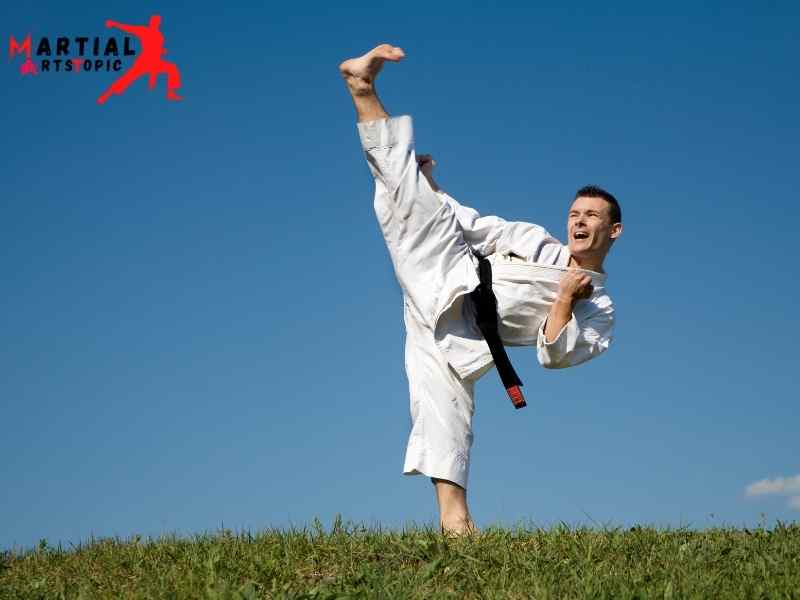
Kenpo Karate for Self-Defense: Practical Techniques to Keep Yourself Safe In today’s world, personal safety is a top concern for many individuals. Whether you find yourself walking alone at night, commuting through busy city streets, or simply wanting to feel more confident and secure in your daily life, learning self-defense techniques can be a significant change. One martial art that stands out for its practicality and effectiveness is Kenpo Karate.
Kenpo Karate is a martial art that focuses on self-defense techniques rooted in striking, grappling, and joint manipulation. Its emphasis on real-life scenarios and practical application makes it an ideal choice for individuals seeking to learn effective self-defense techniques. In this blog post, we will explore how Kenpo Karate can empower you to keep yourself safe in various situations.
- The Power of Strikes: Kenpo Karate teaches a wide range of strikes, including punches, kicks, and elbow strikes. These strikes are designed to be fast, powerful, and precise, allowing you to effectively neutralize threats. By mastering striking techniques in Kenpo Karate, you will gain the ability to defend yourself against attackers of all sizes and strengths.
- Street Awareness: Kenpo Karate places great importance on situational awareness. By learning this martial art, you will develop a heightened sense of your surroundings, enabling you to identify potential threats and avoid dangerous situations. Street awareness is an essential skill in self-defense, as it allows you to anticipate and react to potential dangers effectively.
- Practical Techniques: Kenpo Karate focuses on techniques that are easy to learn and apply in real-life scenarios. The techniques taught in this martial art are not overly complex or flashy. Instead, they are straightforward and efficient, enabling you to defend yourself effectively, even under stressful conditions. By practicing these techniques, you will develop muscle memory, allowing you to react instinctively in dangerous situations.
- Joint Manipulation and Grappling: Kenpo Karate incorporates joint manipulation and grappling techniques, which can be extremely useful in close-quarters combat situations. These techniques enable you to control and immobilize your attacker, giving you the upper hand and creating opportunities to escape safely. By mastering joint manipulation and grappling techniques, you will gain the ability to defend yourself effectively, even if you find yourself in a disadvantageous position.
- Mental Discipline and Confidence: Kenpo Karate not only equips you with physical self-defense skills, but also nurtures mental discipline and confidence. Through regular training, you will build resilience, focus, and self-control. These qualities are invaluable in self-defense situations, as they allow you to stay calm, make quick decisions, and respond effectively to threats.
So, if you are looking for a martial art that combines practicality, effectiveness, and personal growth, consider Kenpo Karate. Start your journey today and take a step towards a safer and more confident you.
The Mental Benefits of Practicing Kenpo Karate
The Mental Benefits of Practicing Kenpo Karate. Kenpo Karate is a martial art that not only improves physical strength and agility but also offers an array of mental benefits. From enhancing focus and discipline to reducing stress and anxiety, the practice of Kenpo Karate can have a profound impact on your overall mental well-being. In this blog post, we will delve into the various mental benefits of practicing Kenpo Karate and how it can unlock your full mental potential.
Improved Focus and Concentration
Kenpo Karate requires intense concentration and focus. Whether you’re learning a new technique or engaging in sparring sessions, you need to be completely present in the moment. This constant mental engagement helps to sharpen your focus and enhance your ability to concentrate for extended periods. As you progress in Kenpo Karate, you will notice an improvement in your ability to concentrate not only during training but also in other areas of your life, such as work or academic.
Enhanced Discipline and Self-Control
Discipline and self-control are essential aspects of Kenpo Karate. The practice requires commitment and dedication to consistent training and adherence to the principles of the art. Through the repetition of techniques, forms, and drills, Kenpo Karate cultivates discipline and self-control. These qualities translate into other areas of life, enabling you to stay focused, overcome obstacles, and make better choices.
Reduced Stress and Anxiety
In today’s fast-paced world, stress and anxiety have become common problems. Kenpo Karate offers a healthy outlet to release stress and tension. The physical activity involved in training helps release endorphins, which are natural mood enhancers, reducing stress and promoting a sense of well-being. Additionally, the focus required in Kenpo Karate helps to clear the mind of daily worries and anxieties, providing a mental escape that can lead to a calmer and more relaxed state of mind.
Increased Self-Confidence and Empowerment
Kenpo Karate teaches you to push past your limits and overcome challenges. As you progress in your training, you will gain a sense of accomplishment and confidence in your abilities. This newfound self-confidence extends beyond the dojo, affecting various aspects of your life, such as social interactions, public speaking, and personal goal-setting. Moreover, Kenpo Karate empowers you by teaching you self-defense techniques, providing you with the skills and knowledge to protect yourself if ever needed.
Improved Mental Resilience and Emotional Control
Through the practice of Kenpo Karate, you will develop mental resilience and emotional control. The physical and mental challenges faced during training teach you to push through discomfort and stay composed under pressure. This resilience and control extend beyond the dojo, helping you handle stressful situations and emotions with ease. As a result, you become better equipped to deal with the ups and downs of life, fostering emotional well-being and a balanced mindset.
Kenpo Karate: Tips and Strategies for Advancing Your Skills
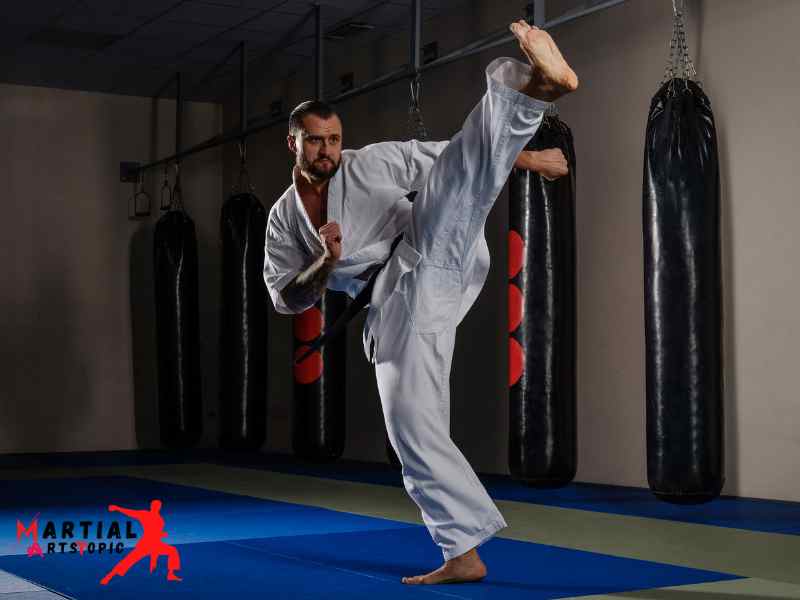
Kenpo Karate: Tips and Strategies for Advancing Your Skills Kenpo Karate is a martial art that focuses on self-defense techniques and fluid movements. With its origins rooted in traditional Chinese martial arts, Kenpo Karate has developed into a modern and effective system of combat. Whether you are a beginner or an experienced practitioner, this blog post will provide you with valuable tips and strategies to enhance your skills in Kenpo Karate.
- Develop a Strong Foundation: Like any martial art, Kenpo Karate requires a solid foundation. Start by mastering the basic stances, punches, kicks, and blocks. Practice these fundamental techniques regularly to build a firm base upon which you can develop more advanced skills.
- Focus on Body Mechanics: Kenpo Karate emphasizes efficient body mechanics to generate power and speed in your strikes. Pay close attention to your body alignment, weight distribution, and hip rotation. By mastering these principles, you will maximize the effectiveness of your techniques.
- Train Regularly: Consistency is key in Kenpo Karate. Make it a habit to train regularly, whether it’s attending classes, practicing at home, or participating in sparring sessions. Regular practice will help you build muscle memory and improve your overall performance.
- Set Clear Goals: To progress in Kenpo Karate, it’s important to set clear goals for yourself. Whether it’s mastering a specific technique, earning a new belt rank, or participating in a tournament, having goals will keep you motivated and focused on your journey.
- Study the Principles: Kenpo Karate is not just about physical techniques; it also encompasses a set of principles and philosophies. Take the time to study and understand these principles, such as timing, distance, and rhythm. Applying these principles to your training will elevate your skills and deepen your understanding of the art.
- Seek Guidance from a Qualified Instructor: Having a knowledgeable instructor is crucial in Kenpo Karate. They can provide valuable feedback, correct any mistakes in your technique, and guide you on your path to mastery. Look for a qualified instructor who has a strong background in Kenpo Karate and is dedicated to helping you reach your full potential.
- Practice Sparring: Sparring is an essential component of Kenpo Karate training. It allows you to apply your techniques in a realistic and dynamic setting. Regular sparring sessions will improve your reflexes, timing, and decision-making skills. Remember to always spar with control and respect for your training partner’s safety.
- Learn from others: Don’t limit yourself to just one source of knowledge. Attend workshops, seminars, and train with different instructors to expose yourself to different perspectives and techniques. By learning from others, you can expand your skillset and deepen your understanding of Kenpo Karate.
- Stay Committed and Patient: Mastery in Kenpo Karate takes time and dedication. Be patient with yourself and trust the process. Stay committed to your training, even when faced with challenges and setbacks. Consistent effort and perseverance will ultimately lead to progress and growth.
- Embrace the Journey: Kenpo Karate is not just about the destination; it’s about the journey. Enjoy learning, growing, and discovering additional aspects of yourself through this martial art. Embrace the challenges, celebrate your accomplishments, and continue to push yourself to new heights.
Training Tips for Kępno Karate Practitioners
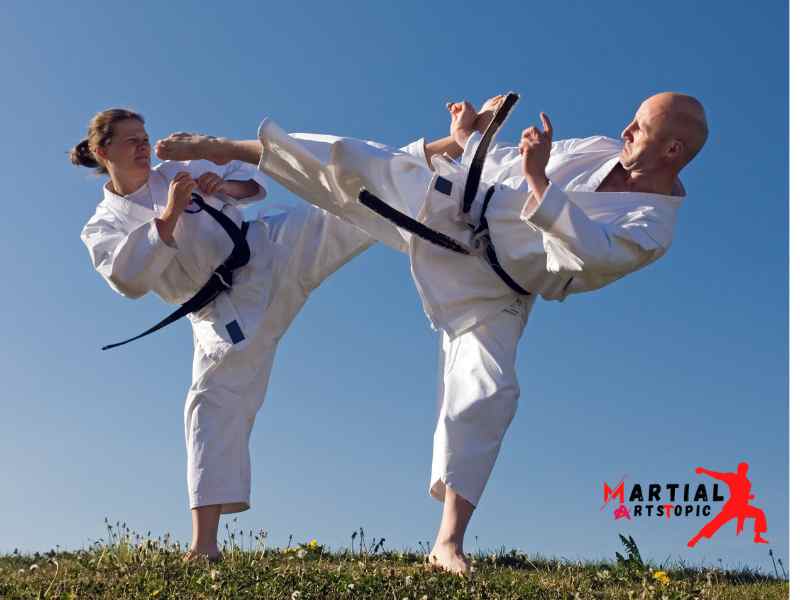
Training Tips for Kenpo Karate Practitioners: Mastering the Art of Self-Defense Kenpo Karate, a dynamic martial art that originated in Hawaii, is known for its fast-paced movements, powerful strikes, and practical self-defense techniques. Whether you are a beginner or a seasoned practitioner, honing your skills in Kenpo Karate requires dedication, discipline, and a commitment to continuous improvement. In this blog post, we will explore some essential training tips that can help you enhance your practice and become a proficient Kenpo Karate practitioner.
- Develop a Strong Foundation: Just like any other martial art, building a solid foundation is crucial in Kenpo Karate. Focus on mastering the basic techniques, stances, and footwork before moving on to complex movements. Practice your basics regularly to ensure proper form, balance, and coordination.
- Train with Purpose: Every training session should have a specific goal or focus. Whether you are working on your strikes, blocks, or combinations, make sure to train with intent and purpose. This will help you develop muscle memory and improve your technique more effectively.
- Emphasize Speed and Power: Kenpo Karate is renowned for its explosive strikes and lightning-fast movements. Work on developing speed and power in your techniques by incorporating plyometric exercises, shadowboxing, and bag work into your training routine. Remember to maintain proper form and technique while focusing on generating maximum power.
- Practice Self-Defense Techniques: Kenpo Karate is primarily a self-defense system, so dedicating time to practicing real-life scenarios is essential. Simulate different situations and practice techniques, such as escapes, counterattacks, and controlling your opponent. This will help you become more confident and prepared in real-world self-defense situations.
- Spar Regularly: Sparring is an integral part of Kenpo Karate training. It allows you to apply your techniques in a dynamic and realistic setting. Spar with different partners of varying skill levels to improve your timing, accuracy, and adaptability. Remember to always prioritize safety and wear appropriate protective gear.
- Stay Flexible and Agile: Flexibility and agility are crucial in Kenpo Karate, as they allow you to execute techniques with ease and efficiency. Incorporate regular stretching routines and flexibility exercises into your training regimen to improve your range of motion and prevent injuries.
- Focus on Conditioning: Kenpo Karate requires physical fitness and endurance. Incorporate strength training, cardiovascular exercises, and conditioning drills to improve your overall fitness level. This will enhance your stamina, power, and performance during training and sparring sessions.
- Seek Guidance from an Experienced Instructor: To truly excel in Kenpo Karate, it is important to seek guidance from an experienced instructor. They can provide expert feedback, correct your form, and guide you through advanced techniques. Additionally, they can offer valuable insights into the philosophy and principles of Kenpo Karate.
- Practice Mental Focus and Discipline: Kenpo Karate is not just about physical prowess; it also requires mental focus and discipline. Cultivate a strong mindset, develop mental resilience, and practice meditation or visualization techniques to enhance your mental acuity and concentration.
- Never Stop Learning: Kenpo Karate is a lifelong journey of self-improvement. Stay open to learning new techniques, attending seminars, and exploring other martial arts to broaden your understanding and skill set. Continuously challenge yourself and strive for constant growth and improvement.
Remember, becoming a skilled Kenpo Karate practitioner takes time, dedication, and perseverance. By incorporating these training tips into your routine, you will undoubtedly progress on your martial arts journey. Stay motivated, stay focused, and never stop learning. Train hard, and embrace the art of Kenpo Karate!
In conclusion
What is Kenpo Karate? Kenpo Karate is a dynamic martial art that offers numerous benefits to its practitioners. Through its focus on self-defense techniques, physical fitness, and mental discipline, Kenpo Karate cultivates a well-rounded individual. The art’s emphasis on adaptability and fluidity allows students to develop their own unique style and approach, making it suitable for individuals of all ages and abilities. Whether one seeks to improve their self-confidence, enhance their physical fitness, or simply learn a practical method of self-defense, Kenpo Karate provides a comprehensive training experience. By practicing this art, individuals can develop not only their physical skills but also their mental and emotional resilience, fostering a sense of personal growth and empowerment. Ultimately, Kenpo Karate is much more than just a martial art–it is a pathway to self-improvement and personal transformation.
